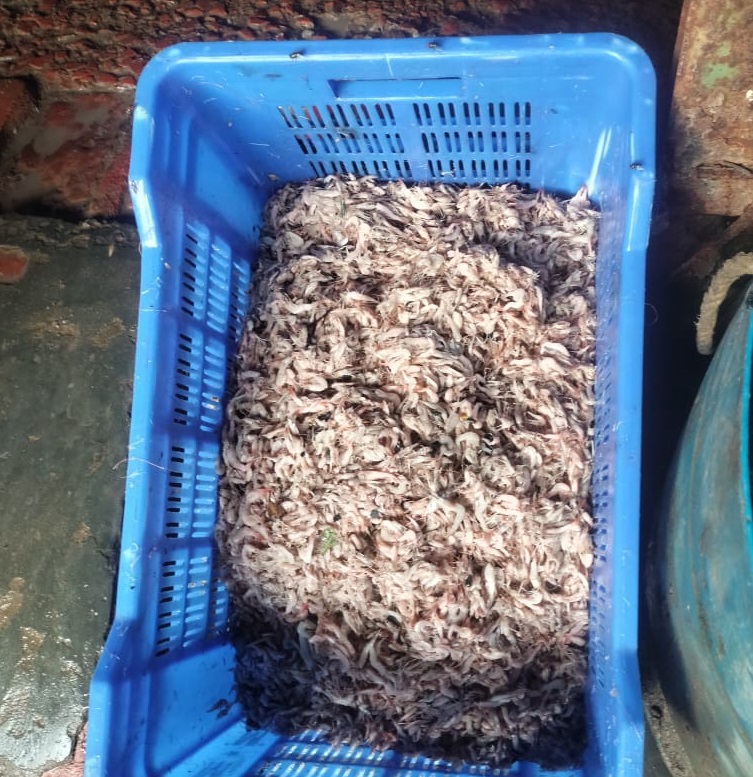By Monika Paik from Shyamnagar, Satkhira
In Shyamnagar, Satkhira, the sale of shrimp harvested using poison in local canals was stopped following the intervention of the environmental group Green Coalition.
The incident took place on Sunday (29 June) at the Kolbari Bazar fish depot. According to sources, despite a seasonal ban on fishing in the Sundarbans from 1 June to 31 August to protect fish breeding, some unscrupulous traders continue to use poison in rivers and canals. Experts warn this practice could eventually devastate the region’s fish stocks and biodiversity.
On Sunday morning, about 40 kg of shrimp killed using poison from the Chuna River basin was brought to the Kolbari Bazar depot for sale. Local community members, fish depot committee members, and Green Coalition activists noticed the shrimp’s unusual color and smell and immediately blocked its sale.

Green Coalition members warned the seller and the depot owner that if the shrimp was sold, they would involve the Forest Department and River Police to impose fines. Buyers were also urged not to purchase the poisoned shrimp, with the warning that anyone trading in such shrimp would face legal action.
With collective effort, all of the tainted shrimp was ultimately discarded into the river to prevent its sale. According to local communities, during high tide, unscrupulous fishers set nets on both sides of Sundarbans canals and apply poison in between, causing fish to die quickly and float into the nets. These poisoned fish are then sold openly in local markets at low prices, posing serious health risks to consumers.
Md. Shariful Islam, Joint General Secretary of Green Coalition in Burigoalini Union, said, ‘Local people often unknowingly buy these poisoned fish. Eating them can damage kidneys and livers and increase cancer risk. We’re working in the field to raise awareness and will soon highlight these issues widely. Local trader Md. Anwarul Islam Nayon said, “When poisoned water is carried by the outgoing tide, it affects marine life even in deeper sea areas and seeps into the surrounding soil. Its toxic effects linger, reducing aquatic breeding and harming health. We call on the authorities to pay special attention to protect the Sundarbans’ wildlife, nature, environment, and ecosystem.”
